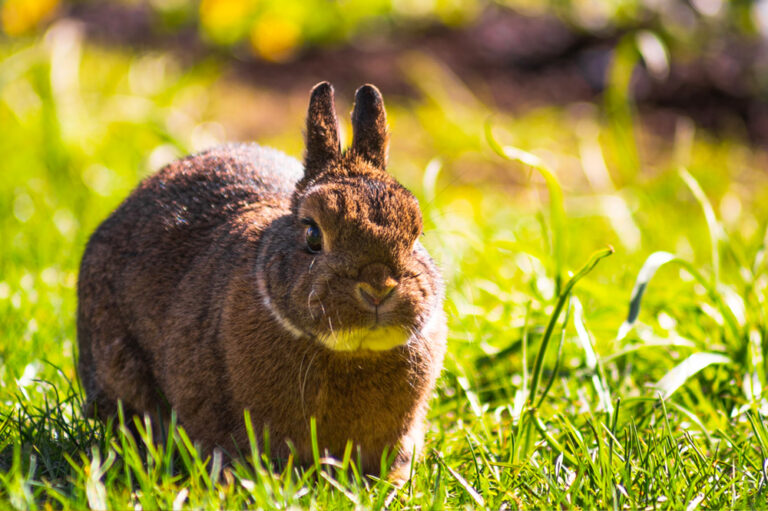An animal’s ability to boost the physical and mental wellbeing of those who welcome them into their lives are widely well known and understood. So, it stands to reason, that after all the festivities are done, and the New Year kicks in, that people will consider the idea of bringing a new pet into their homes in a bid to bring some much-needed joy into the bleak midwinter.
However, the decision to buy a pet should never be taken lightly, and there is a lot that needs to be considered beforehand. So, what can you do to make sure you’re ready to take the step, and how can you help an animal settle right in, if or when they arrive? Here are our top eight tips to consider when getting a new pet.
Are you ready for the commitment?
There is a reason they’re often referred to as ‘fur babies’. Pets and children have a lot in common, and it’s not just that they are cute – they need love and constant care. They need attention. And they need time.
If, for example, you cannot commit to taking long walks three times a day (in all weathers!) then being a dog owner is probably not for you.
Is your lifestyle suited to having pets?
Shelters are full of animals that their owners found to be too high energy, too needy, too frisky. This is usually because people do not thoroughly research how different animals or breeds vary from a behavioural perspective and in turn, the level of care this will dictate.
For example, a fish or a hamster would make fewer demands on your lifestyle than a cat or a dog, but they won’t probably give you much affection. A Chihuahua may seem low maintenance and the right size to live in any size of home, but they’re not generally tolerant of children and are prone to biting with little provocation.
It’s important to truly understand an animal’s temperament, and what that will mean for your lifestyle and your family. How will they fit in with existing pets, their home habitats, cohabiting humans, work, or school schedules? Make sure you do some research and choose wisely.
Get your support system in place
All pets at some point will become ill and veterinary care. Are you prepared for what that means? It’s no secret that all treatment comes at a price, but that price will vary between practices. Are you fully aware of the real and true cost implications?
Ask your pet-owning friends, research online and phone or visit local practices. Get a sense of the people you’d be working with, and the prices they are likely to charge. They may well be willing to offer recommendations on breeds or types of pets that might suit you or advise on any common health complications or undesirable traits that your preferred pet might have.
Another excellent source of information and advice will be your local pet store. They too will have extensive knowledge of breeds and the vet services in the area, but they can also be an enormous help with all manner of other questions you might have about your pet. Not every ailment will require costly veterinary care, after all.
Most pet store owners will be happy to discuss your pet’s wellbeing and provide guidance on how to care for your animal. This can on occasion alleviate any concerns and mitigate the need to go the vets at all.
However, in the event that veterinary care is needed, we also recommend taking out pet insurance. Treatment for pet ailments and injuries can cost up to thousands of pounds, and you can never predict if or when our pet will need treatment. Despite pet insurance being an additional monthly cost, having a plan can potentially save you a lot of money should your pet get injured or fall ill.
Make Your Home Pet-Friendly
Did you know that chocolate can poison dogs? Or that many house plants (such as lilies and aloe vera) are toxic to cats?
Houses need to be accident-proofed for pets in a similar way that they would for a baby or toddler. Knowing what the potential hazards are and adapting your home accordingly are incredibly important for avoiding tragic and life-threatening incidents happening to your pets.
Also consider not only what your home can do to your pet, but what your pet can do to your home. Puppies chew. Litter trays can smell. Rabbits can scratch. You will want to prepare accordingly.
Arm yourself with products such as our Anti-chew spray or the Clean ‘n’ Safe Stain & Odour Remover which will help to manage pet accidents on carpets, rugs, and upholstery, in the home or in the car. These, amongst others, will protect your home whilst your new pet settles in.


Buy the right food
Pet food marketing targets us with cute pictures and catchy slogans, pulling at our heartstrings and encouraging repeat purchases. But it’s always best to think twice about what food we offer our pets, and they can have very individual needs.
Pet food choices should be driven by a pet’s specific life stage and lifestyle. There are a host of different brands and varieties offering varying nutrients or supporting specific ailments. There are also supplements available to combat any deficiencies, such as joint problems or skin/fur issues. The right pet food can help boost your animal’s wellbeing so be aware not to just purchase blindly, but with your pet’s best interests at heart.
Training your pet
Housetraining your new pet should take priority as soon as you welcome them home. Kittens should be immediately introduced to their litter tray, and puppies should be allowed to sniff, explore and become acclimatised to their new surroundings.
Clean ‘n’ Safe house-training pads or a Puppy Trainer pump spray are an excellent idea whilst pets settle in and learn the basics of where they can and can’t go. Always rewards good behaviour and offer positive affirmations when they behave as you wish them to.


Outside of the home, if you have a dog, puppy training classes are advisable. Training is a good bonding exercise with your dog. It keeps them safer when out and about and allows them to be more sociable.
Consider Spaying and Neutering
Some people decide not to spay or neuter their pets because they feel that the animal will lose its identity, or that it will miss out on the milestone of giving birth.
But the best thing you can do for your pet’s health is to have him or her neutered. It can decrease any aggression and make females less susceptible to cancer of the mammaries and ovaries. But if you choose not to, there are products available such as Johnson’s Bitch Spray or Johnson’s Bitch & Deodorant Tablets that can stave off any unwanted advances and help to protect your animal.


Get ID
It’s illegal to not ensure that your dog is fitted with a microchip by the time it’s 8 weeks old, and you could be fined up to £500 if it’s not. It’s likely that this will soon also be the case for cats. But microchipping is a prudent to consider such steps for all other animals too if you want to keep them safe.
There are of course other options. Printed or engraved collar tags, or even GPS devices that can be attached to the collar. It’s also a good idea to take regular photos of your pet as they grow so that you have them available to share if they go missing. The important thing is to have substantial ID in place, to keep your new family unit whole, and to protect them from the wider world.





